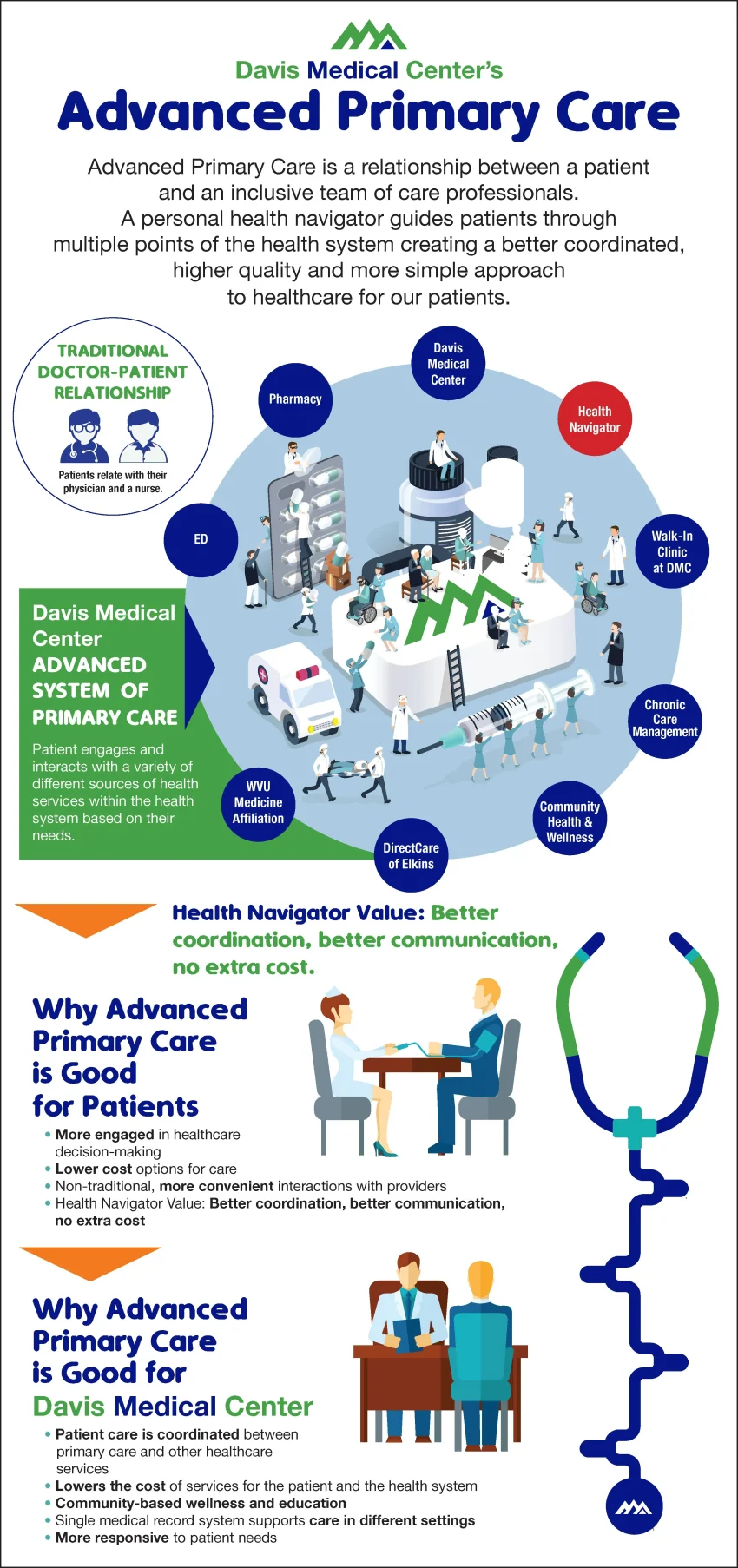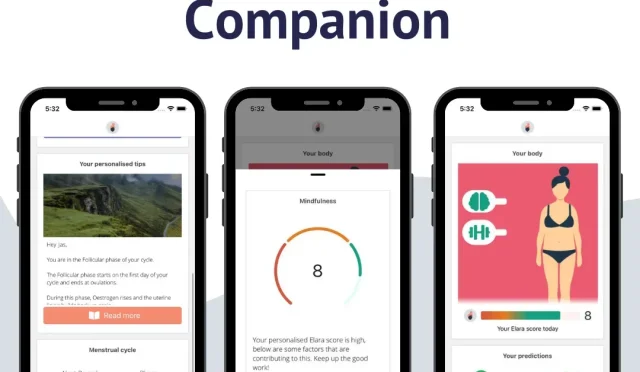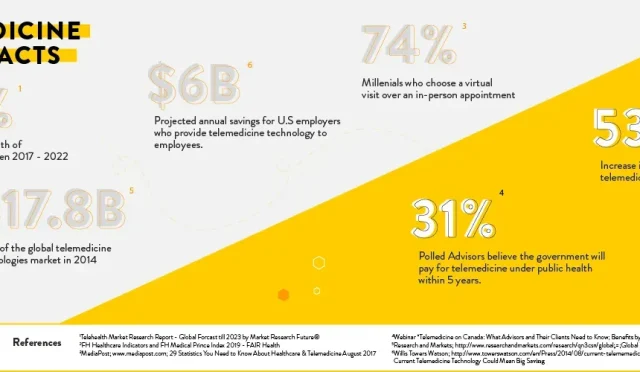Advanced Primary Care: A New Era for Organizations
Advanced Primary Care (APC) is revolutionizing the way organizations approach healthcare solutions, offering a personalized yet cost-effective strategy to enhance employee wellbeing. With providers like Marathon Health leading the charge, employers can implement comprehensive care to improve health outcomes while effectively managing expenses. By integrating advanced primary care services, businesses not only address the needs of their workforce but also promote patient success through streamlined processes and virtual primary care options. The innovative model of APC allows for timely access to occupational health resources, fostering a healthier work environment. Join us to discover how embracing advanced primary care can lead to significant cost savings and improved productivity for your organization.
In today’s fast-paced world, the pursuit of effective healthcare strategies is more crucial than ever. Alternative healthcare delivery models, often referred to as progressive primary care, are designed to prioritize patient needs while optimizing costs for organizations. These approaches, inclusive of virtual healthcare solutions and occupational wellness programs, focus on delivering personalized care that engages patients and supports their overall health journeys. By implementing advanced healthcare frameworks, organizations can create an ecosystem that not only fosters employee satisfaction but also drives down healthcare expenses. Discover how these tailored care models can reshape your organization’s approach to health and wellness.
Maximizing Health Outcomes with Advanced Primary Care
Advanced Primary Care (APC) represents a significant shift in how organizations approach healthcare solutions for their employees. By focusing on personalized care and preventive measures, APC allows organizations to intervene earlier in the healthcare process, ultimately leading to better health outcomes. This proactive strategy not only improves employee health but also contributes to reduced overall healthcare costs. When employees have access to tailored care, conditions can be managed before they escalate, which is beneficial for both patients and employers.
Organizations that adopt the APC model often see a noticeable improvement in patient success rates. With continuous engagement and a focus on the whole person, APC fosters a culture of health that encourages employees to participate in their care actively. This engagement results in better management of chronic conditions, increased patient satisfaction, and a healthier workforce overall. A robust APC framework can create a ripple effect, leading to improved organizational productivity and reduced absenteeism due to health-related issues.
The Role of Virtual Primary Care in Employee Wellness
Virtual Primary Care has surged in popularity, particularly in response to changing healthcare needs post-pandemic. This model of care provides employees with flexible access to healthcare services without the traditional barriers of time and travel. Through telehealth appointments, assessments, and consultations, employees can receive the care they need at home or work, significantly enhancing their access to medical professionals. This convenience leads to higher engagement rates and a better patient experience, as employees are more likely to seek care when it is easily accessible.
By integrating Virtual Primary Care into your organization’s health strategy, companies not only prioritize employee health but also save on costs associated with in-person visits. This model provides a streamlined approach to managing health services and can be seamlessly combined with onsite health centers or occupational health solutions. Essentially, Virtual Primary Care complements existing resources, leading to an integrated approach that meets employees’ diverse healthcare needs while promoting a culture of wellness.
Cost-Effective Occupational Health Solutions
Investing in Occupational Health solutions is crucial for organizations aiming to protect their workforce and reduce healthcare expenses. By focusing on the health and safety of employees in the workplace, organizations can mitigate risks associated with occupational hazards. These solutions not only enhance employee wellbeing but also contribute to creating a safer work environment, which is essential for maintaining productivity and morale. Furthermore, offering robust occupational health programs can significantly reduce the cost burden on companies by lessening the frequency and severity of workplace injuries.
Implementing effective occupational health solutions through a partner like Marathon Health allows employers to focus on prevention and wellness rather than just reactionary measures. Programs that include routine health screenings, ergonomic assessments, and health education can empower employees to take charge of their health. As a result, organizations can experience a lower turnover rate and reduced healthcare claims, translating to significant savings in the long run. This comprehensive approach leads to healthier employees, lower costs, and ultimately, a more thriving business.
Empowering Employers with Comprehensive Healthcare Solutions
Employers play a vital role in fostering a culture of health within their organizations. Comprehensive healthcare solutions, such as those offered by Marathon Health, enable employers to customize their health offerings based on the specific needs of their workforce. By integrating Advanced Primary Care, mental health services, and wellness programs, employers can create a holistic approach that caters to both physical and emotional well-being, ensuring that all aspects of health are addressed.
A tailored healthcare solution not only increases engagement but also enhances employee satisfaction and retention. By investing in the health of their employees, employers demonstrate a commitment to their workforce, which can significantly boost morale and foster loyalty. With such initiatives, organizations can also expect to see a positive impact on their bottom line, as healthier employees are more productive and less likely to require costly medical interventions.
Unlocking Employee Potential Through Mental Health Care
The importance of mental health care in the workplace cannot be overstated. Addressing mental health issues promptly and effectively contributes to overall employee wellbeing, engagement, and performance. Organizations that prioritize mental health strategies, including access to mental health professionals and resources, can create an atmosphere in which employees feel valued and supported. This leads to a more engaged and productive workforce, as employees are less likely to face burnout and absenteeism when their mental health needs are met.
Incorporating mental health care as part of a broader Advanced Primary Care strategy can drastically improve employee morale. When employees know that their employer cares about their mental health as well as their physical health, it fosters a sense of community and belonging. Companies that successfully integrate mental health care into their benefits often see reduced turnover rates and improved employee productivity, resulting in a healthier, more resilient organization.
Achieving Patient Success Through Value-Driven Referrals
Value-driven referrals are essential in modern healthcare as they directly impact patient success. By ensuring that patients are referred to the right specialists and services, healthcare providers can optimize treatment outcomes and enhance overall patient experience. Marathon Health advocates for a referral process that prioritizes quality over quantity, ensuring that patients receive the most effective care solutions tailored to their unique needs. This approach significantly reduces wait times and improves health outcomes, showcasing the commitment to patient-centered care.
A robust value-driven referral system also strengthens the overall healthcare delivery model. When patients benefit from timely and relevant referrals, it fosters trust in the healthcare provider, leading to higher satisfaction rates and better adherence to treatment plans. Organizations that utilize this model can effectively leverage their healthcare investments by minimizing unnecessary procedures and promoting proactive health management, ultimately guiding patients towards a healthier future.
Leveraging Population Health Management Strategies
Population Health Management (PHM) is a critical component in driving effective healthcare solutions for organizations. By analyzing the health needs of a population, organizations can implement targeted interventions that are both efficient and cost-effective. PHM allows healthcare providers to focus on prevention and chronic disease management, ultimately improving health outcomes across diverse employee demographics. This strategic approach enables employers to comprehensively address the health challenges faced by their workforce.
Through effective PHM, employers can identify health trends within their workforce and tailor their health programs to meet these specific needs. By fostering a culture of health that includes regular screenings, health education initiatives, and lifestyle management resources, companies can significantly enhance the well-being of their employees. This proactive outlook not only improves individual health outcomes but also fosters a more resilient and productive workforce.
Innovative Approaches to Medication Management
Effective medication management is a cornerstone of ensuring patient safety and achieving positive health outcomes. Organizations like Marathon Health focus on innovative solutions that streamline the process of managing prescriptions and medication adherence among their patient populations. By providing patients with the necessary resources and support, organizations can reduce the risks associated with medication mismanagement, leading to decreased hospital readmissions and improved patient satisfaction.
Incorporating technology into medication management services allows for better tracking and monitoring of medication use. From reminders to refill prescriptions to real-time consultations with pharmacists, organizations can enhance their care delivery while prioritizing patient education. This approach not only ensures that employees understand their medications but also encourages them to take an active role in their health journey, resulting in better adherence and health outcomes overall.
Enhancing Access to Onsite & Nearsite Health Centers
Onsite and near-site health centers are pivotal in delivering timely healthcare services to employees, thereby fostering a culture of wellness within the workplace. By placing healthcare resources within close proximity, organizations eliminate common barriers to care such as transportation issues or lengthy wait times. This convenience encourages employees to seek care when needed, leading to quicker diagnosis and interventions that enhance overall health outcomes and workplace productivity.
Employers who implement these health centers see a marked increase in employee engagement with their health and wellness programs. Onsite health centers can provide various services, including physical exams, preventive screenings, and immediate care for minor injuries. Additionally, these centers serve as a hub for health education and wellness initiatives, empowering employees to make informed health decisions. Consequently, organizations benefit from reduced healthcare costs and a healthier, more engaged workforce.
Frequently Asked Questions
What is Advanced Primary Care and how does it benefit organizations?
Advanced Primary Care (APC) is a healthcare model that focuses on personalized care delivery, improving patient engagement and health outcomes while lowering overall healthcare costs for organizations. By implementing APC solutions, employers can streamline healthcare services, reduce emergency room visits, and potentially save significant amounts on employee healthcare expenditures.
How does Marathon Health provide Advanced Primary Care solutions?
Marathon Health offers Advanced Primary Care solutions tailored to meet the unique needs of organizations. Through onsite and virtual health services, they ensure comprehensive care, including occupational health and mental health support, leading to improved patient success and lower overall costs for employers.
What types of services are included in Advanced Primary Care from Marathon Health?
Marathon Health’s Advanced Primary Care services include virtual primary care, occupational health, mental health care, musculoskeletal services, and population health management. These services are designed to ensure holistic care for patients, enhancing overall health and wellness.
Can Advanced Primary Care improve patient satisfaction and health outcomes?
Yes, Advanced Primary Care significantly improves patient satisfaction and health outcomes. With a focus on patient engagement, Marathon Health’s model encourages preventative care and regular health assessments, leading to measurable improvements in biometric markers and enhanced patient experiences.
What roles do employers play in the success of Advanced Primary Care initiatives?
Employers play a crucial role in the success of Advanced Primary Care initiatives by facilitating access to healthcare services for their employees. By partnering with organizations like Marathon Health, employers can implement effective healthcare solutions that prioritize employee health, reduce costs, and boost employee engagement.
How does virtual primary care fit into the Advanced Primary Care model?
Virtual primary care is a key component of the Advanced Primary Care model offered by Marathon Health. It allows patients to access healthcare services remotely, providing flexibility and convenience, which can lead to increased patient engagement and improved overall health management.
What are the expected outcomes of implementing Advanced Primary Care in a workplace setting?
Implementing Advanced Primary Care in a workplace setting typically results in reduced healthcare costs, increased employee engagement, higher patient satisfaction rates, and improved health outcomes. Organizations may also see a decrease in emergency room visits and improved overall productivity as a result.
How can organizations measure the success of Advanced Primary Care initiatives?
Organizations can measure the success of Advanced Primary Care initiatives through key performance indicators such as healthcare cost savings, employee engagement rates, patient satisfaction scores, and improvements in health metrics over time. Tools like ROI analyses can further help in assessing the financial impact.
What resources does Marathon Health provide to organizations interested in Advanced Primary Care?
Marathon Health provides a range of resources to organizations interested in Advanced Primary Care, including case studies, webinars, and tailored proposal consultations. These resources help employers understand the benefits and logistics of implementing effective healthcare solutions.
How can organizations get started with Advanced Primary Care through Marathon Health?
Organizations can get started with Advanced Primary Care by contacting Marathon Health to discuss their healthcare needs. The process involves meeting with experts, selecting appropriate solutions, and ultimately providing a healthcare model that focuses on employee wellness and cost reduction.
| Category | Details |
|---|---|
| Access Health Services | Join the webinar on June 26 to learn about Advanced Primary Care (APC). |
| Benefits of APC | Flattens cost curve in first year, aimed at reducing healthcare costs. |
| Care Delivery Types | Onsite, Nearsite, Network Health Centers, and Virtual Primary Care. |
| Target Audience | Employers, Unions, Health Plans, Brokers & Consultants. |
| Success Story | New Balance saved $12.3M with health centers and achieved a 70% engagement rate. |
| Getting Started | 1. Determine needs 2. Choose solutions 3. Offer better experience. |
Summary
Advanced Primary Care is designed to provide organizations with a comprehensive approach to healthcare, ensuring cost reductions and improved health outcomes. By implementing tailored healthcare solutions, such as onsite health centers and virtual care options, organizations can enhance employee well-being and satisfaction while effectively managing healthcare expenses. Marathon Health exemplifies how effective primary care can lead to significant savings and better health management.
#AdvancedPrimaryCare #HealthcareInnovation #OrganizationalHealth #ValueBasedCare #MedicalSolutions








